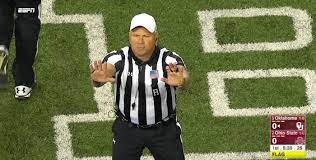Wearable technology has dubious effects on workplace safety, but it allows employers to more closely monitor employees which can be helpful in reducing workers’ compensation costs for employers. Expect more wearable technology in the workplace as workplace surveillance expands.
“Wearable” technology is touted by workers’ compensation insurance “thought leaders” as the greatest thing to happen to the industry since their successful decades long assault on state workers’ compensation laws in legislatures across the nation.
So what’s so great about wearables from an insurance perspective? Two studies show exoskeleton technology can actually cause more and more severe injuries.
I think it’s the surveillance. A recent Wall Street Journal article showed the number of employers surveilling their employees on the job has doubled from 30 percent to 60 percent over the last two years.
According to article, which didn’t interview anyone speaking from a labor or worker-side, workplace safety is one “legitimate” reason to monitor employees.
Here’s what I think workplace safety means in the context of workers’ compensation.
Surveillance and employment risk
Employees only collect workers’ compensation for injuries incurred arising out of their employment. In other words, even if you are on the clock on company premises and you get hurt at work, you may not get workers’ compensation if 1) your injury wasn’t caused by your work duties or 2) you were doing something in substantial deviation from your job duties when you were hurt,
Wearable technology allows employers to monitor when an employee is working and not working. Employers such as Amazon use technology to monitor their employees. Wearable technology makes it easier for an employer find out whether an employee was (allegedly) deviating from their employment when injured. (Hence giving the employer/claims administrator/insurer another excuse to deny a claim)
Wearables, surveillance and fault in workers’ compensation
Workers’ compensation benefits are supposed to be pay limited benefits regardless of fault. I believe arguments an employee was injured by deviating from their employment duties essentially backdoor fault into no-fault workers’ compensation laws.
Wearables provide another means to sneak employee fault back into workers’ compensation. Wearable can allegedly be used to find out ways to reduce injuries and coach employees to do jobs in a safer manner. But what if an employee is injured by doing a job that contradicts how the wearable technology thinks a job gets done? Why wouldn’t an employer/insurer argue that an employee was deviating from their employment duties or even violating a safety rule by performing a job “the wrong way”?
I question whether a workers’ compensation judge would accept such a conclusion. This is particularly true if the safety data generated by the wearable was deemed to “confidential” by some third-party vendor.
But that assumes a case goes to trial. In the meantime an injured worker would be waiting for months for a hearing with no income and unpaid medical bills.
Even if judges initially reject employer arguments about why workers’ compensation claims should be denied based on data from wearables, it doesn’t mean that employers/insurers won’t continue to make those arguments until they gain some acceptance.
The Great Resignation, Quiet Quits and employee surveillance
Employers and their mouthpieces are lamenting the Great Resignation and so-called “quiet quiting” based on the COVID-19 pandemic. Employee monitoring gives management information about who is allegedly slacking off and who should get laid off if the job market cools. That same technology will also be used to deny or limit payment of workers’ compensation benefits to employees hurt on the job.


